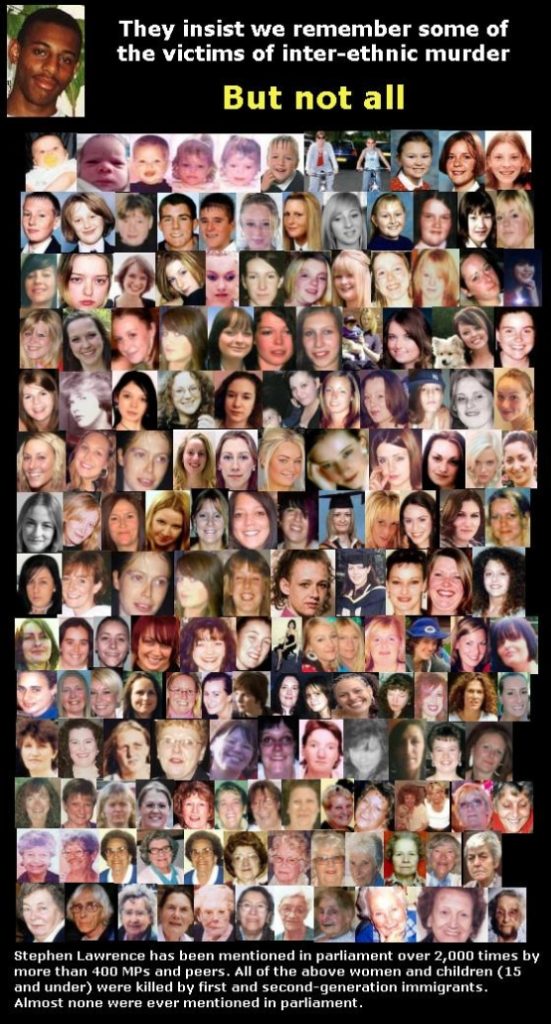Will Wright
Is Christianity a friend or foe? I know this is a provocative question, but I do not ask it because I am fervently convinced of the idea that I am going to put forward. Rather, I want to stimulate thought, even debate. I certainly do not want to offend any of you. The subject that I am going to introduce, is too large to do justice to in one post. I suggest that those of you who are interested do your own reading about this (as well as reading this post, of course!).
The ‘White Man’s Religion’
Christianity has been around for two millennia. When the Roman Emperor, Constantine, made Christianity the official religion of Rome, he paved the way for ‘Christendom’ to eventually become synonymous with ‘Europe’. Christianity became the White Man’s religion for hundreds of years. It unified White Europeans, even as our peoples fought each other to create empires in the non-White world.
Each of us has been raised as Christians. I know that some of you are sincere believers who attend church. Christianity is deeply rooted in our culture. But did Christianity give White Europeans strength? Or did our people achieve what they did despite Christianity? Is seems a strange thing to write.
White Europeans civilised the world and created the modern world that we see today. Missionaries caused much of the world to become Christian. The other big widespread world religion is Islam.
The American Black Power leader, Malcolm X, promoted the ‘Nation of Islam’ as the Black Man’s religion, in his rejecting of White Europeans ruling the world. He too saw Christianity as the White Man’s religion.
Meet Marcus Eli Ravage (1884 – 1965)
Marcus Eli Ravage was a Jewish writer, born in Romania. He emigrated to the United States at the age of 16. He died in France aged 81. In 1928, he wrote A Real Case Against the Jews and Commissary to the Gentiles.
Ravage mocked anti-Semites for all that they said and wrote against the Jews. In typically Jewish fashion, he either denied the allegations, or he belittled them. But he further mocked White Europeans for embracing Christianity. His message to us seemed to be: how can you worry about Jews creating Communism and Global Monopoly Capitalism when you have allowed Jewish Christianity to take over Western Civilisation completely and comprehensively – and for two thousand years? He wrote:
“You are self-deceivers. You lack either the self-knowledge or the mettle to face the facts squarely and own up to the truth. You resent the Jew not because, as some of you seem to think, we crucified Jesus but because we gave him birth. Your real quarrel with us is not that we have rejected Christianity but that we have imposed it upon you!”
Ravage relates how the Romans came to rule Palestine, and how the Jews rebelled against this. He says that Jesus originally intended Christianity to be only for Jews. But the Jewish elders hated a new religion that would make them weak, as a nation. They wanted to crush Christianity.
Christianity Repackaged
According to Ravage, Saul of Tarsus was persecuting Christians, on behalf of the Jewish leaders, when he had his vision on the road to Damascus. He realised two very important things. It occurred to him that the Jewish nation could never militarily defeat the might of the Roman armies. But he also realised that Christianity could be repackaged, and only for ‘export’. It could be comprehensively rejected by Jews themselves, but be spread by them among the people of the Roman Empire, in order to make Rome weak. He convinced the Jewish national leaders of his new mission.
Saul then reinvented himself as ‘Paul’, the new leader of Christianity. He took Jesus’ religion of weakness, meekness and cowardice, and infected the Roman Empire with it. The Romans sacked Jerusalem, and the Jews dispersed around the Roman world. But the Jews had their revenge (they are big on revenge) against Rome, because eventually, over centuries, the Romans became soft and their empire collapsed under repeated invasions by more robust peoples. Ravage writes:
“The Goy, we see with relief, will never know the real blackness of our crimes.”
“Why talk about Marx and Trotsky when you have Jesus of Nazareth and Paul of Tarsus to confound us with?”
“But the upheaval which brought Christianity into Europe was – or at least may easily be shown to have been – planned and executed by Jews as an act of revenge against a great Gentile state. And when you talk about Jewish conspiracies, I cannot for the world understand why you do not mention the destruction of Rome and the whole civilisation of antiquity concentrated under her banners, at the hands of Jewish Christianity.”
“And mind you, no less an authority than [Edward] Gibbon long ago tried to enlighten you. It is now a century and a half since The Decline and Fall of the Roman Empire (1776) let the cat out of the bag.”
“The goal now was nothing less than to humble Rome as she had humbled Jerusalem, to wipe her off the map, just as she had wiped out Judea.”
Was Ravage right?
Edward Gibbon, the historian did dislike the Jews, and he did blame Christianity for destroying the Roman Empire. That was controversial in 1776. Today there are condensed versions of his The Decline and Fall of the Roman Empire available. Ravage’s book can be obtained from Ostara Publications. If you go there, then also look out for a book about Julian The Apostate, who tried to reverse the Roman embracing of Christianity. Julian wanted a return to Roman Paganism.
Alternatively, Thomas Dalton has edited Classic Essays on the Jewish Question 1850 to 1945. That has Ravage’s essay, and much else besides, that is worth reading, but do not expect to buy that on Amazon. I got from Alibris Books UK.
Jews created the Bolshevik Revolution in Russia. But over time, the Jews lost their grip on that country. That happened too with Christianity. Christianity might have been adapted by Paul to weaken and destroy Rome. But the Roman Catholic Church became powerful – and very anti-Jewish. White European muscularity had reasserted itself! Christianity toughened up, as the White European religion. That is why Jews, such as Sigmund Freud, hated it so much and wanted to destroy it.
It seems ironic that some modern Jews strived to destroy something that their own forebears had created, and for subversive purposes. Could the answer be that, once it had destroyed the Roman Empire, it had served its purpose? But then it went on to become a source of strength to White Europeans. And that was unforgivable
Those of you who are interested, should read Kevin MacDonald’s middle book of his trilogy, Separation and its Discontents. It is about historical anti-Semitism. There is a chapter giving much detail about how the Roman Catholic Church kept the Jews from positions of power in society, for a long time.
What would we replace Christianity with?
In Nazi Germany, both the Lutheran Protestant churches, and the Roman Catholic Church, had signed agreements with the National Socialist state. The Nazi leaders recognised that Christianity was deeply rooted in Europe. Some Nazi leaders did not like Christianity, any more than Church leaders liked Nazism. But those in power must be realistic.
That did not prevent some Germans from attempting to revive the old Nordic religion, Odinism. They include the First World War Field Marshall, Erich von Ludendorff. But that seems to me to be a venture doomed to failure. Odinism perished hundreds of years ago, and could not easily be brought back, even with state sponsorship. In any case, would we really want it? What did Odinists, back then, really believe?
In Britain, some Anglo-Celts would like to revive Druidism. But there is the same problem. Druidism died out even longer ago than Odinism. No one alive now knows what the Druids believed. Some think that they had a religion akin to Hinduism – but that must be considered to be speculation.
Some modern Europeans believe that Man has outgrown religion. They think Atheism, or at least Agnosticism, is the way forward. But personally, that is unsatisfactory for me. I believe in God, even though I am not a regular church attender.
Christianity has influenced and controlled European civilisation for many centuries. It cannot just be rinsed away – even if we wanted to do that. We have to come to terms with that – even while recognising its Jewish origins.
The original Christianity would have died out two millennia ago. The Jewish national leaders hated it, because it would make Jews weak and universalist in outlook. The Romans were indifferent to it, while it remained exclusively among the Jews. Christianity only survived when Paul’s adapted version of Christianity spread throughout the Roman Empire. Then, the Roman authorities immediately recognised it as a threat to Roman strength. They too tried to crush it.
Today, Europe and Britain have many racial foreigners. Some of the most troublesome people are Muslim fanatics. Some of them are political Islamists. Some White people see a revived Christianity as a counterbalance to militant Islam. But today’s church leaders are wet, political liberals.
If we ever see a racial nationalist government in the UK, then it would need to decide what to do about Christianity. To decide if it was a friend or a foe. For me, there are no satisfactory, obvious answers. In the meanwhile, we must all make up our own minds about how we feel about Christianity, and what we think about the modern churches.
Copyright (c) 2023 Will Wright. For permission to reproduce this post please contact the author through this web site.



